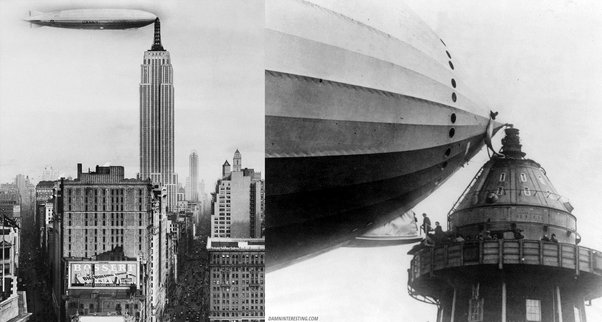For me it is the fact that our blood contains iron. I earlier used to believe the word stood for some ‘organic element’ since I couldn’t accept we had metal flowing through our supposed carbon-based bodies, till I realized that is where the taste and smell of blood comes from.
There is about 8.1 billion people in the world. Assuming romantic cliches to be true and that we all have exactly one soulmate out there, we would have a very hard time sifting them out. If you were to use exactly one second at meeting a person it would take you 257 years to meet everyone alive on earth at this moment, which due to human life span being significantly shorter and the influx of new people makes the task essentially impossible without a spoonful of luck. Moral of the story: If you believe you have found your soul mate, be extra kind to them today.
I mean, you should be extra kind to most people most of the time. Comunism begins at home.
Soul mates are made, not found. You get with someone compatible to you, and through the sharing of experiences and affection, if nothing goes excessively wrong, they become unique for you.
Definitely agree and beautifully put :)
If you were to use exactly one second at meeting a person it would take you 257 years to meet everyone alive on earth at this moment
Well I don’t need to meet everybody. There’s no need to meet anyone who doesn’t match my sexual preferences, so that’s half right there. Then we can also cut everyone who’s sexual preferences I don’t meet, as well as anyone outside of a given age range (most of the people on earth are much younger than me and would be inappropriate for me to date). We can probably get that down to about 50-60 years. (At one second per person).
The thought experiment was just an attempt to show how hard it is to wrap our minds around big numbers. Even a tangible number such as the amount of people in the world.
There are only 24 episodes of the initial run of The Jetsons and only 25 of Scooby Doo. They got aired as reruns for decades before more episodes were made. There are only 15 episodes of Mr. Bean.
This one startled me.

To piggy back on your “bizarre fact”, the same type of iron can be found added to cereal.
I remember several times in school we’d do a science demonstration where we’d smash up Cheerio (or a knock off) brand ceral, mix the powder with water and slowly drag a magnet through the slurry. Every time the magnet would be pulled out of the mix, there’d be more and more tiny iron bits.
We did the same but with Special K in a blender, and held a magnet to the side of the blender’s cup.
Time relativity always boggles my brain, I accept the fact but I find crazy that if I strap my twin and his atomic clock to a rocket and send them out to the stratosphere at the speed of light, when they return he’ll be younger than me and his clock will be running behind mine. Crazy
Please dont do that
The hell that giving birth can be.
A lot of women endure having a baby…and holy. shit. No.
Every time that comes up, I think to myself “Something I’ve gone through must be more painful, right? I’ve gone through some pretty hellish things, and you’re trying to tell me something MORE painful exists? Not just a little more, but dramatically more? For my own sanity, I’m gonna have to live in denial of that.”
Their bodies produce chemicals that cause them to forget how bad childbirth was.
There’s a giant ball of extremely hot plasma in the sky and we aren’t supposed to look at it. What is it hiding? Surely if someone managed to look at it long enough, they would see the truth!
I’ve seen some of its secrets during the eclipse. It’s an angry, writhing tentacled thing. Be thankful it’s so far away.
Your bones are made of calcium, which is also a metal. You’ve got a metal frame inside your body.
There’s about 25 blimps in the world, and only 40-50 pilots.
doesn’t really fit the thread, but i was surprised when i learned that the empire state building has a blimp docking station

They really thought blimps were gonna be a thing.
They should have been
this is super cool.
That looks like sea creatures mating
Here’s one: Iron doesn’t have a smell. It acts as a catalyst in the reaction of bodily fluids or skin oils, which is why you can’t smell coins after washing them
[This comment has been deleted by an automated system]
Planets and stars and galaxies are there. You can see them because they’re right over there. Like, the moon is a big fucking rock flying around the earth. Jupiter is even bigger. I see it through a telescope and think “wow that’s pretty,” but every once in a while I let it hit me that I’m looking at an unimaginably large ball of gas, and it’s, like, over there. Same as the building across the street, just a bit farther.
The stars, too. Bit farther than Jupiter, even, but they’re right there. I can point at one and say “look at that pretty star” and right now, a long distance away, it’s just a giant ball of plasma and our sun is just another point of light in its sky. And then I think about if there’s life around those stars, and if our star captivates Albireoans the same way their star captivates me.
And then I think about those distant galaxies, the ones we send multi-billion dollar telescopes up to space to take pictures of. It’s over there too, just a bit farther than any of the balls of plasma visible to our eyes. Do the people living in those galaxies point their telescopes at us and marvel at how distant we are? Do they point their telescopes in the opposite direction and see galaxies another universe away from us? Are there infinite distant galaxies?
Anyway I should get back to work so I can make rent this month
If I point my finger at one of those galaxies, there’s more gas and shit between us within a hundred miles of me than there is in the rest of the space between us combined
What’s even more fascinating is that most of the stars we see in the sky are afterimages of primitive stars that died out long ago yet they shine as bright as the stars alive today
That doesn’t seem right. The galaxy is only 100,000 light years across (give or take) and the life span of stars is measured in billions of years.
Most of the stars we see are in our galaxy, so at most, we are seeing them as they were 100,000 years ago, which means that the vast majority of them will still be around, and looking much the same as they did 100,000 years ago.
I seem to have made a mistake then. Thank you for correcting it.
Thinking about it further, if we’re talking about stars that we can see with telescopes, Hubble, James Webb etc, then you’re on the money. Stars in remote galaxies far outnumber the ones in our galaxy and show us glimpses of the early stages of the universe. And many of those stars are long gone
There’s no such thing as tides. Gravity holds the water as the earth rotates
Tides are a phenomenon where the height of the edge of a body of water shifts relative to the shore. A phenomenon is a thing. Why should explaining its cause in those terms have any effect on that?
But aren’t the tides caused by external gravitational forces (the moon?)
the tides stay in the same place relative to the moon and the earth spins below the tidal bulges (earth spins faster than the moon orbits, is the basic thing)
I’m confused: you say there’s no such thing as tides, and then explain what tides are?
Tides are the waters going out and coming back. That is how we experience it. We experience it wrong.
That’s like saying sunrise doesn’t exist because the sun is relatively stationary while the earth revolves on its axis. Sunrise and tides are the names we give to how we experience these things.
Subjective experience cannot be wrong or right; it simply is. Interpretation of that experience can be wrong or right. Either way, the experience still happened.
Queuing theory can have some fun surprises.
Suppose a small bank has only one teller. Customers take an average of 10 minutes to serve and they arrive at the rate of 5.8 per hour. With only one teller, customers will have to wait nearly five hours on average before they are served. If you add a second teller the average wait becomes 3 minutes.
Can you elaborate on the math here? (I believe you, I just want to understand the simulation parameters better).
Not OP, but this website should explain everything.
The sun could’ve gone nova 8 minutes ago and we wouldn’t know for another 20 seconds or so.
Well, we’d know by now
Calcium is a metal. We have metal bones.
From Wikipedia on bones:
Bone matrix is 90 to 95% composed of elastic collagen fibers, also known as ossein,[5] and the remainder is ground substance.[6] The elasticity of collagen improves fracture resistance.[7] The matrix is hardened by the binding of inorganic mineral salt, calcium phosphate, in a chemical arrangement known as bone mineral, a form of calcium apatite.[9]
So the statement is a bit faulty, not only because of the relative low amount of calcium in our bones, but also because it appears as a mineral. We distinguish between salts and metals because of their chemical properties being quite different (solubility, reflectiveness, electrical conductivity, maleability and so on).
Edit: I do realize the point of the comment was not to be entirely factual, so if I am allowed as well I would say science is pretty metal.
















